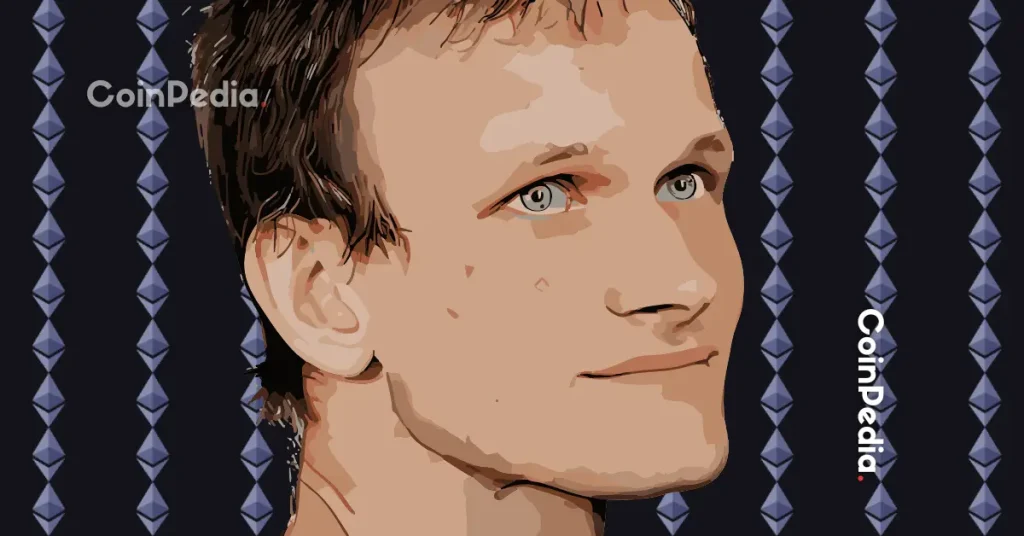Ethereum Founder Vitalik Buterin Urges Open Systems to Protect Democracy and Privacy



The post Ethereum Founder Vitalik Buterin Urges Open Systems to Protect Democracy and Privacy appeared first on Coinpedia Fintech News
Ethereum co-founder Vitalik Buterin is widening the conversation beyond crypto.
In a new blog post , he warned that if the world continues to rely on closed, centralized systems in healthcare, finance, and governance, the result could be monopolies, abuse of power, and a deep loss of trust.
“The default path,” Buterin wrote , “is corporations and governments building closed systems that benefit themselves, not society.”
His answer: critical infrastructure must be open-source and verifiable so that anyone can inspect and trust it.
Why Openness Is a Safeguard
Buterin’s point is that open systems act as a check on power. Societies that build and control their own transparent infrastructure don’t just use technology, they shape it in ways that are harder to exploit.
Closed systems, on the other hand, may look smooth on the surface but often hide inefficiencies and risks.
Healthcare: COVID-19’s Warning Sign
The COVID-19 vaccine rollout was a clear example for Buterin. With production locked in proprietary systems and communication often opaque, public trust suffered.
He pointed to projects like PopVax, an open-source vaccine initiative, as proof that transparency can reduce costs and build trust at the same time.
Finance: Crypto Shows the Alternative
The financial system isn’t much better. Buterin highlighted the gap between traditional services and blockchain networks: an Ethereum transaction can settle in five seconds, while filing one legal form in the U.S. can cost $119 and take days.
For him, it serves as a reminder that open, verifiable systems like blockchain cut through inefficiency, while closed financial rails continue to drag their feet.
Also Read: State Expiry vs Partial Nodes: Vitalik Buterin Reveals What’s Better for Ethereum
Governance and Elections Under Scrutiny
Governance, too, is at risk. Many voting systems today rely on “black box” machines that leave citizens unable to confirm results. That lack of transparency, Buterin argues, eats away at trust in democracy itself.
The same logic applies to courts, civic services, and legal evidence. Without open, verifiable systems, citizens are left taking outcomes on blind faith.
Buterin has also tied openness with privacy. He’s been clear that privacy is not optional and must be built into systems from the ground up. His Ethereum privacy roadmap, unveiled earlier this year, aims to show how verifiable infrastructure can still protect individuals.
A Closing Warning
Buterin’s vision extends beyond crypto: open-source phones that double as secure wallets, transparent health trackers, and civic systems that anyone can audit.
But his warning is blunt – if open alternatives don’t take root soon, corporations and governments will fill the gap with closed, profit-driven systems. And once those are entrenched, they’ll be much harder to challenge.
“Openness and verifiability,” he argues, may decide whether society’s future infrastructure empowers people or controls them.

Pudgy Penguins Price Prediction 2025, 2026–2030: How High Can PENGU Go?
The post Pudgy Penguins Price Prediction 2025, 2026–2030: How High Can PENGU Go? appeared first on C...

Bitcoin Q4 2025 Forecast: BTC Could Move $20K Amid Weak Uptober Rally?
The post Bitcoin Q4 2025 Forecast: BTC Could Move $20K Amid Weak Uptober Rally? appeared first on Co...

Kraken Pledges $2 Million to Pro-Crypto PACs to Back Crypto Privacy Rights
The post Kraken Pledges $2 Million to Pro-Crypto PACs to Back Crypto Privacy Rights appeared first o...

